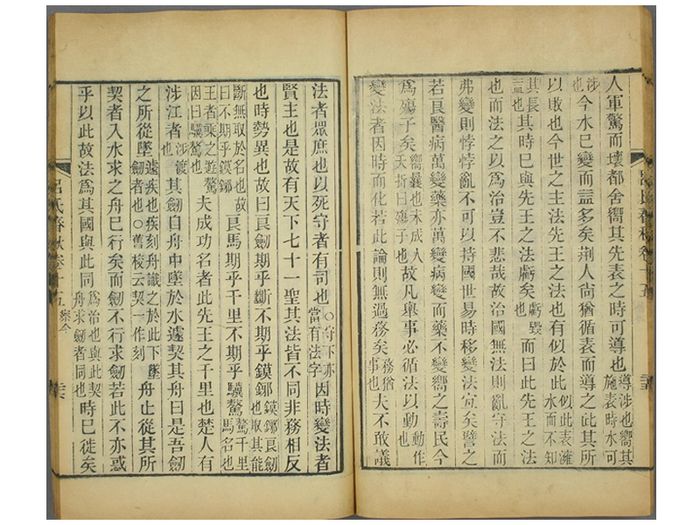(Translation) 刻舟求劍
| Primary Source | ||
|---|---|---|
 |
Title | |
| English | ||
| Chinese | ||
| Korean(RR) | ||
| Text Details | ||
| Genre | ||
| Type | ||
| Author(s) | ||
| Year | ||
| Source | ||
| Key Concepts | ||
| Translation Info | ||
| Translator(s) | Participants of 2018 Summer Hanmun Workshop (Intermediate Training Group) | |
| Editor(s) | ||
| Year | 2018 | |
Original Script
Translation
Student translation: Jelena Gledić
Among the Chu people, there was one who was crossing a river, and his sword fell from the boat into the water. He immediately made a mark on his boat and said: "This is whence my sword fell." Stopping the boat, he entered the water at the spot where he marked [the boat] to look for the sword. The boat had already moved, and the sword had not moved. To look for the sword in this way, is it not quite perplexing?
Lüshi Chunqiu, chapter eight Contemplating the Present
- Discussion Questions:
+ More of a dilemma: I was not sure about the translation of the name of exact part of the work from which this story was taken (察今篇), so I tried to follow what I found on Baidu (察今,篇名,是《吕氏春秋·慎大览第三》中的第八篇,略有删节...). I am aware that leaving pinyin is an option, but I wanted to try and indicate the section in English, even though I am aware that anyone who would be able to engage with the original would be fine with just pinyin.
(YO) Something like "Contemplating on the Present"? (JG) Thank you, I think that works well!
(Fran) I was interested to discover that a primary meaning of huo is "delusion", which could render the last line as "is this not delusional?" I like this rendering because of its Buddhist vibe, although the Lushi Chunqiu is pre-Buddhist, of course.
(JG) That's is really interesting! I guess I saw 惑 as thinking it is odd but not being sure if it is just the writer's perception of it (心疑不定), but delusion would imply that the writer is assessing that that way of searching is "objectively" silly or wrong. I wonder which meaning was more prevalent when this version of the text came about.
(YO) We can also think about the semantic connection and distance between "delusion" and "perplexity" in Sinitic languages. There is 疑惑 'perplexity', 困惑 'perplexed', 不惑 'unperplexed (a way of saying 40 years of age)'; and 眩惑/炫惑 'delusion', 迷惑 'to delude', 惑世 'to mislead, delude the world'. Both of them are associated with 惑 and they all existed since early before the introduction of Buddhism.